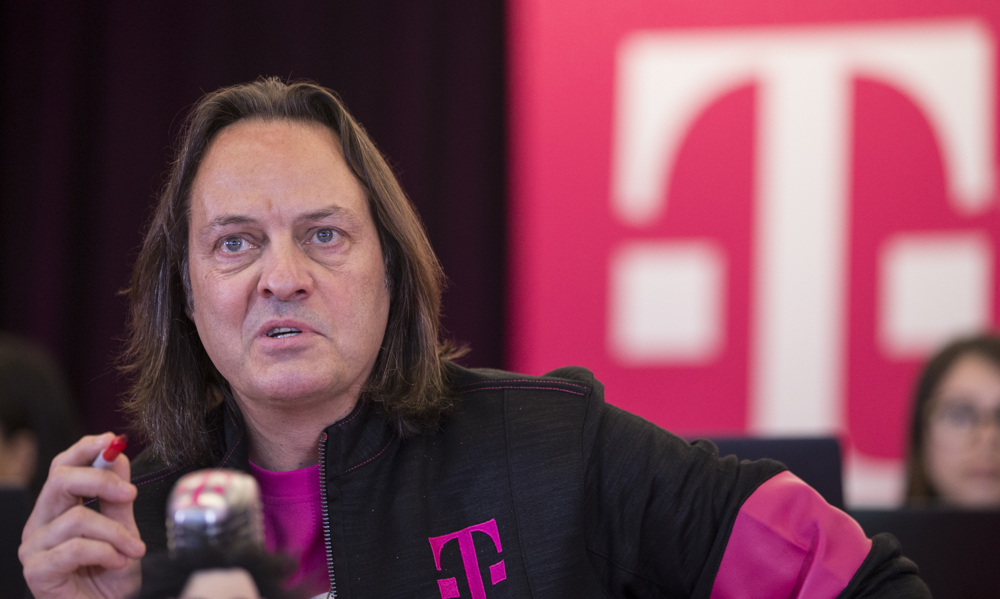T-Mobile's Legere: Sprint Deal Isn't in Trouble

The smarter way to stay on top of broadcasting and cable industry. Sign up below
You are now subscribed
Your newsletter sign-up was successful
T-Mobile CEO John Legere said a Wall Street Journal report that the Sprint merger was in trouble is off base.
He tweeted:
[embed]https://twitter.com/JohnLegere/status/1118265746453192704[/embed]
That lead WSJ graph was:
"Justice Department antitrust enforcement staff have told T-Mobile US Inc. and Sprint Corp. that their planned merger is unlikely to be approved as currently structured, according to people familiar with the matter, casting doubt on the fate of the $26 billion deal."
It was not clear whether Legere was saying Justice had not signaled the deal needed to be reconfigured, or whether there had been such a request, but that it did not necessarily put the fate of the deal in doubt.
It would not be unusual for Justice to seeks changes. If T-Mobile were OK with them, Justice could file suit and immediately file a settlement saying the deal was OK with those adjustments.
The smarter way to stay on top of broadcasting and cable industry. Sign up below
T-Mobile has argued that the merger of the third and fourth largest wireless carriers would create a stronger "uncarrier" competitor to AT&T and Verizon and that it was the fastest and best way to create a 5G network, a goal the Trump Administration has made a priority given that the President does not want to lose the race to next-gen wireless to the Chinese.
Free Press, which opposes the deal, was taking the story and running with it, sending out an e-mail saying the merger was teetering toward collapse. “We are encouraged by news of the potential demise of this bad deal," said Free Press Policy Counsel Carmen Scurato.
Others were pushing back on the suggestion DOJ should step in.
“The idea that the Trump administration—otherwise largely committed to a hands-off, deregulatory agenda—would block the proposed merger between Sprint and T-Mobile is baffling," said Competitive Enterprise Institute VP Wayne Crews. "Blocking the merger would contradict the administration’s long-stated plans for vast new infrastructure growth in the United States -- of which networks and cells needed to launch 5G are critical examples. This type of healthy, pro-consumer investment should come from private ventures like a merged Sprint/T-Mobile, not government; and that requires big companies to make significant investments without worrying about Washington.
"I was disappointed to read the report in today’s Wall Street Journal that the T-Mobile-Sprint merger may be encountering resistance from the Department of Justice’s Antitrust Division," said Free State Foundation President Randolph May. "If this is true, it is problematic because I fear that the Antitrust Division may be relying on an outdated static view of the relevant market rather than one that reflects today’s market dynamics. The T-Mobile/Sprint combination will likely make the wireless market even more competitive by creating a stronger third place competitor behind Verizon and AT&T. Increasingly, it looks like a standalone Sprint will play a diminishing role as a competitive check."
Contributing editor John Eggerton has been an editor and/or writer on media regulation, legislation and policy for over four decades, including covering the FCC, FTC, Congress, the major media trade associations, and the federal courts. In addition to Multichannel News and Broadcasting + Cable, his work has appeared in Radio World, TV Technology, TV Fax, This Week in Consumer Electronics, Variety and the Encyclopedia Britannica.

